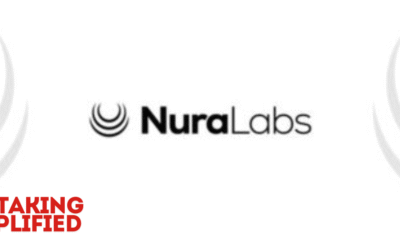Legal News
What to Look For in an EEOC Attorney for Federal Employees

Looking for an EEOC attorney for federal employees can be overwhelming, and there’s so much at stake. That’s why looking for the right qualities in a federal employment lawyer is so important. Let’s explore further.
Experience with Federal Cases
Federal employment law demands deep, specialized knowledge. Unlike private sector cases, federal agencies operate under complex, unique rules that change often. Finding an attorney who understands these critical differences can make or break your case.
Understanding of Agency Procedures
Each federal agency has its own procedural and cultural nuances and effective attorneys know these subtle but crucial variations. They understand how a case at the Social Security Administration differs from one at the Department of Defense or FBI. Years of experience teach them how each agency’s HR department typically responds, how to get the supporting material you need, and which approaches work best. This insight shapes every step of your case.
Track Record of Wins
Look for a track record of negotiated settlements and court victories spanning many years. An attorney’s track record reveals consistent success against various federal agencies, not just one or two. Some cases might mirror your situation — similar discrimination claims or retaliation patterns. Others show their range in handling different workplace issues.
Ask about an attorney’s recent wins, too. Federal employment law changes often, and today’s cases need current expertise. The most effective attorneys build on past victories while staying sharp on new legal developments.
Knowledge of Federal Deadlines
Federal employees face strict deadlines that can end a case before it begins. You have just 45 days to contact an EEO counselor after a discriminatory incident — miss this window, and you’ll likely lose your right to file a complaint.
After the formal complaint stage, new deadlines kick in at each phase. The best attorneys track these critical dates carefully, knowing a single missed deadline can destroy an otherwise strong case. They build systems to ensure every filing happens on time, protecting your right to fight back.
Communication Style
Your EEOC case may last months or even years. You need an attorney who listens well and speaks clearly, and the way they communicate now shows how they’ll handle your case later.
Direct Access to Your Attorney
The best EEOC attorneys for federal employees give clients their direct phone numbers. When you’re facing discrimination at work, you can’t wait days for answers. Look for an attorney who personally takes your calls — the peace of mind this will give you during a potentially stressful battle with your agency will be priceless.
Clear Case Updates
Your attorney should explain each step without prompting, telling you what’s happening, what comes next, and why it matters. Great lawyers send updates before you ask and proactively keep you informed through every phase of your case.
Plain Language Explanations
Federal employment law is tangled with complex terms and procedures. Your attorney should cut through this fog with clear, simple explanations. Watch how they answer your initial questions. Do they use everyday language? Can they break down difficult concepts into bite-sized pieces?
The best lawyers translate legal jargon into terms you’ll grasp easily, making sure you understand exactly what’s happening with your case.
Resources and Support
Fighting federal agencies demands more than just legal skill. Strong EEOC cases need teams of experts, skilled staff, and deep investigation resources. A solo attorney rarely has enough tools to battle the government’s vast resources. Look beyond the lawyer to their supporting players, too.
Expert Network
Your case might need experts — for example, a medical expert to prove disability discrimination, a workplace specialist to show retaliation patterns, or a financial analyst to calculate your lost pay and benefits.
The best EEOC attorneys build networks of trusted professionals who understand federal cases. These experts know how to present evidence that meets strict court standards. Some attorneys work with former agency investigators who spot hidden discrimination patterns. Others partner with psychiatrists who document harassment’s emotional toll. This expert network may make the difference between winning and losing.
Staff Support
While your attorney leads your case, skilled paralegals and legal assistants handle crucial daily tasks. They track deadlines, organize evidence, and keep files current. Strong support staff lets attorneys focus on strategy instead of paperwork. Watch how the office team works during your first visit. Professional, responsive staff members signal a well-run practice.
Investigation Capabilities
Great EEOC attorneys know how to dig deep through personnel files, emails, and agency records. They interview witnesses thoroughly and document everything. Some firms use specialized software to analyze hiring patterns or pay disparities. Others employ former federal investigators who know where to look for proof. Your attorney needs these tools to build an airtight case.
Settlement vs. Trial Strategy
Many federal employment cases settle before trial, but it’s important to know when going to trial would be better. An effective lawyer will build a strong case from day one while exploring settlement options, knowing when to push for trial and when to negotiate with federal agencies.
A settlement might protect your career better than a court battle. It could bring faster relief with less stress. Yet sometimes agencies only respond to lawsuit pressure. Your attorney should explain both paths clearly, noting how each choice might affect your future. The strategy must match your goals, whether that’s keeping your job, clearing your name, or securing fair compensation.
Do You Need an EEOC Attorney for Federal Employees?
Federal employment law is highly specialized and federal workers face unique employment rules that set them apart from private sector employees. Here’s when you might need an attorney for your discrimination case:
- You’re not sure how to move forward with your application or if you have enough documentation to support a strong case.
- You’ll think you’ll need medical documentation, but you don’t know what documentation or how to get it.
- Your application has been denied. This doesn’t mean you don’t have any further options, and an experienced EEOC attorney for federal employees can assess the denial and whether there’s a case for overturning it.
-

 Press Release5 days ago
Press Release5 days agoNura Labs Files Revolutionary Patent: AI-Powered Wallet Solves the $180 Billion Crypto Staking Complexity Crisis
-

 Press Release3 days ago
Press Release3 days agoGlobal Compound Feeds and Additives Industry Report: Market Expansion and Competitive Insights to 2035
-

 Technology3 days ago
Technology3 days agoWhat to Know Before Switching Cell Phone Network Services in 2025
-

 Press Release23 hours ago
Press Release23 hours agoCrypto WINNAZ Launches First On-Chain Yield Engine for Meme Coins, Enabling 20x–300x Returns














